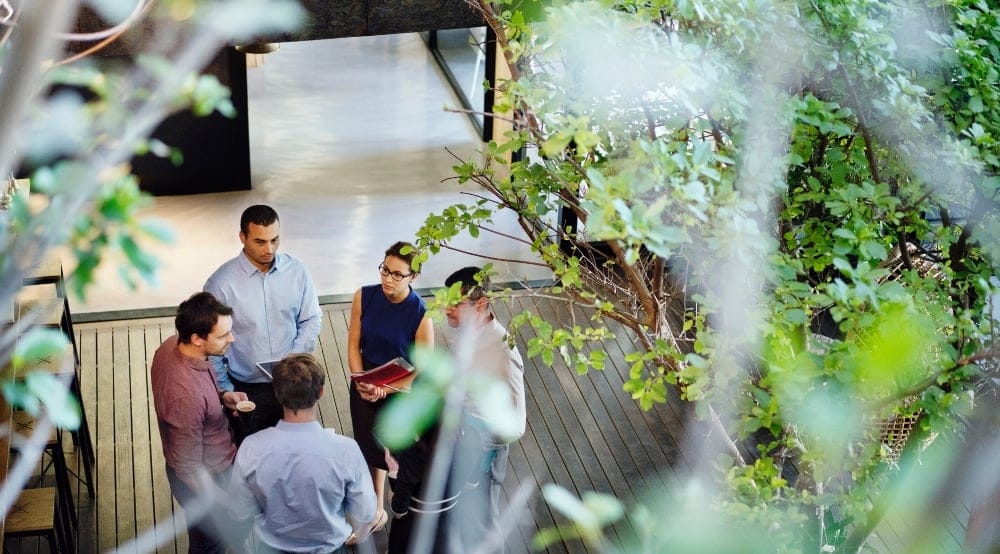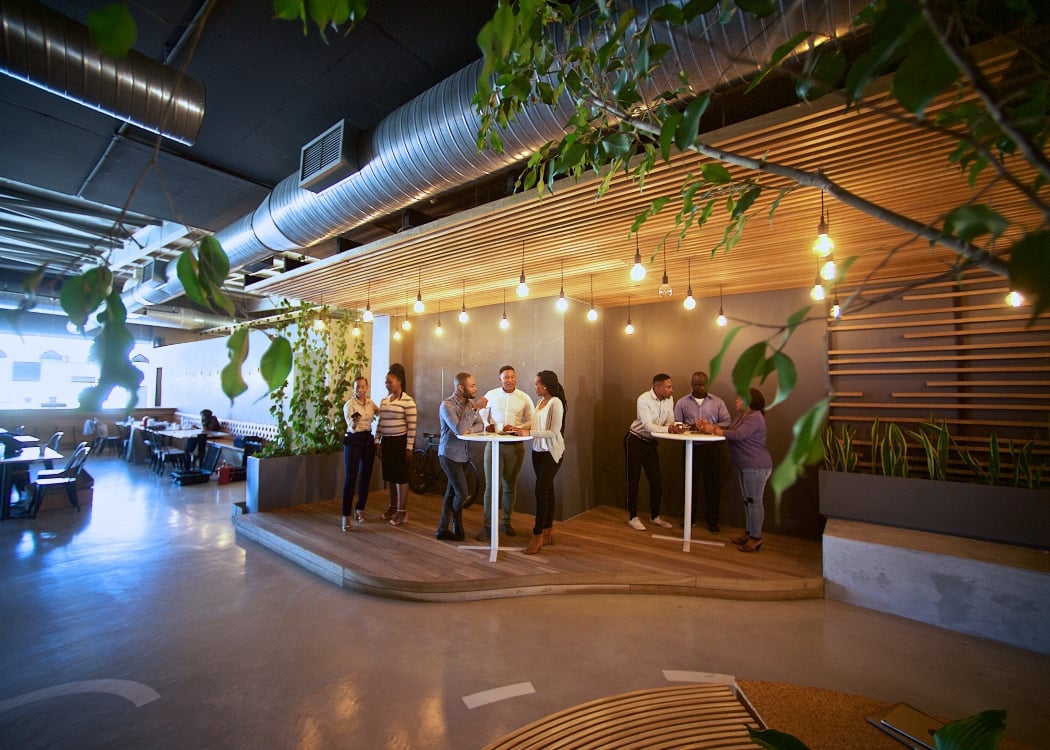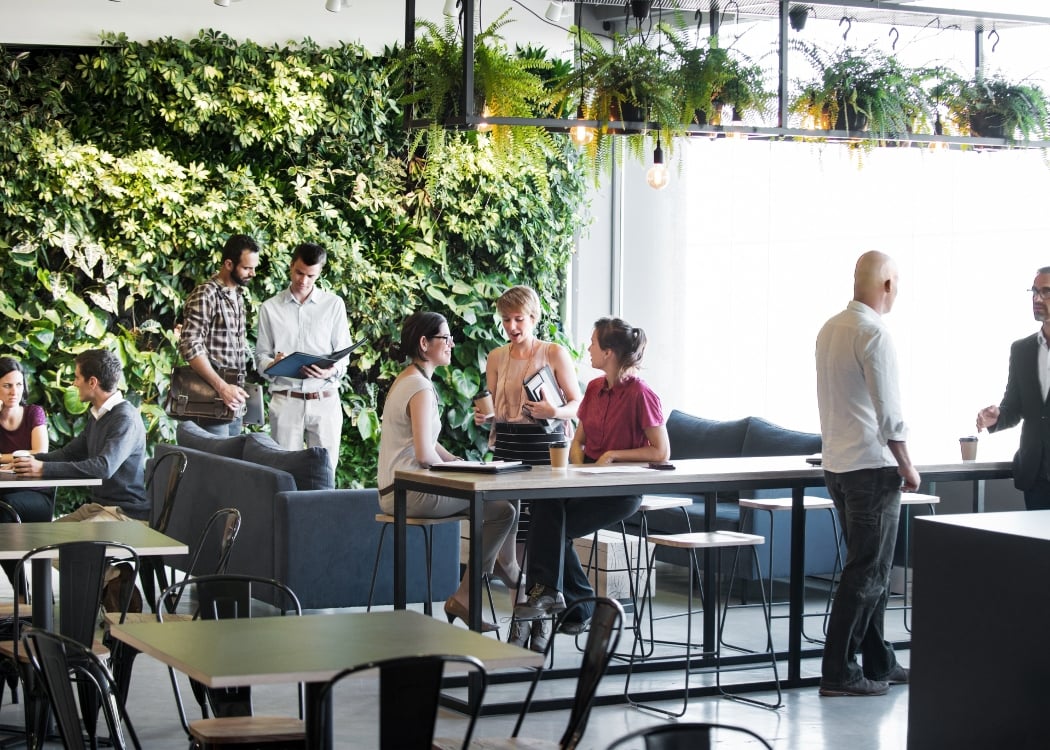
Let us help you with finding an office space
Our experts are here to help take the hard work out of finding your next office space.

Attracting and retaining talent has never been more critical for businesses. Today, millennials and Generation Z are looking for companies that can provide more than just an attractive package or an ideal parking spot.
This rapidly emerging green, tech and, often socially conscious workforce is rejecting high-paid roles that don’t reflect their ideals in favour of companies that do.
Julie Henline, at global architecture firm Gensler, puts it best: “Consider talent acquisition from an HR perspective: your well-crafted job posting enticed a candidate to apply. Your company website piqued their interest in your core business and your social media presence spoke to their values. The candidate will undoubtedly dress to make a good impression. But as they enter your workplace for their initial interview, what impression does the space itself make? Does it reflect your company’s culture and values?”
Henline argues that companies should actually use and explore ways to leverage their physical workplace as an asset for attracting and retaining talent; today, it is not enough to simply house people in a physical workplace that doesn’t live up to its full potential.
And it benefits businesses, too. According to a workplace survey by Gensler, experiential businesses that place an emphasis on collaboration, innovation, and culture (all of which can be achieved in the right office environment) have, on average, “four times higher profits and double revenue”.
Get your monthly dose of workplace insights, productivity hacks and business leadership ideas - delivered straight to your inbox.
 Henline argues that companies should actually use and explore ways to leverage their physical workplace as an asset for attracting and retaining talent.
Henline argues that companies should actually use and explore ways to leverage their physical workplace as an asset for attracting and retaining talent.
It’s not a new idea. In fact, the Silicon Valley tech behemoths realised early on that in order to retain top talent, they would need to create workplaces that drive creativity, sustainability, and flexibility.
Take, for example, Amazon’s headquarters in Seattle. Known as The Spheres, the office is a jungle-inspired greenhouse with glass orbs that are meant to pull Amazon workers out of their high-rise offices and into a workspace that’s embedded in nature.
From rope bridges and tree houses to streams and green walls, The Spheres include thousands of plants strategically placed to encourage employees to think creatively.
While the tech giants are winning the war for talent, companies are realising the value of creating spaces that are less traditional, incorporating sleep pods, mothers’ rooms, gyms and workout facilities, and placing a greater emphasis on health and wellbeing; encouraging staff to take time out for yoga, tai chi, or even volleyball.
Companies are also offering staff more flexibility and choice around the office. Gensler’s research show that the most innovative companies actually have twice as much choice around not just when work occurs, but also where it occurs.
 Known as The Spheres, Amazon’s headquarters in Seattle is a jungle-inspired greenhouse with glass orbs that are meant to pull Amazon workers out of their high-rise offices and into a workspace that’s embedded in nature.
Known as The Spheres, Amazon’s headquarters in Seattle is a jungle-inspired greenhouse with glass orbs that are meant to pull Amazon workers out of their high-rise offices and into a workspace that’s embedded in nature.
In 2019, Amnesty International’s Future of Humanity survey interviewed over 10,000 18-25-year olds across 22 countries and revealed that 41% of respondents cited global warming as the most important issue facing the world.
With sustainability a key element for the new socially conscious workforce, companies like General Electric have already made sustainability a key part of their employee engagement and hiring strategy, highlighting the use of renewable energy in the workplace, conveying how the company is committed to reducing its carbon footprint and understanding that equality and diversity are critical factors.
 As offices slowly begin to re-open, the new and emerging workforce will look at the credentials of the office of the future, looking at its reliance on technology, its green agenda and its ability to put health and wellbeing at the fore.
As offices slowly begin to re-open, the new and emerging workforce will look at the credentials of the office of the future, looking at its reliance on technology, its green agenda and its ability to put health and wellbeing at the fore.
With the seismic shift that the global pandemic has brought with it in 2020, organisations are adopting new ways of working, and boldly reimagining the role of the office environment, equipping it for staff to feel safe and secure – even though hybrid working has taken precedence.
As offices across the world undergo a transformation, technology will play a central role in enabling employees to return safely to their offices.
Organisations are already looking at staggered shifts, re-designing offices, thermal cameras, health tracking, and relying on desk-booking apps and contactless technology within their buildings.
As offices slowly begin to re-open, the new and emerging workforce will look at the credentials of the office of the future, looking at its reliance on technology, its green agenda and its ability to put health and wellbeing at the fore.
Now is the time for companies to rethink the role of the office in bold and creative ways.

Our experts are here to help take the hard work out of finding your next office space.